Black pepper is made from the dried, unripe fruit (drupe) of the Piper nigrum vine. Specifically, it contains piperine (5-9%), volatile oils (2-8% including limonene and pinene), dietary fiber, and trace minerals like potassium and iron. The distinctive black color forms when green peppercorns undergo sun-drying, causing enzymatic browning and oxidation of compounds in the fruit's outer layer.
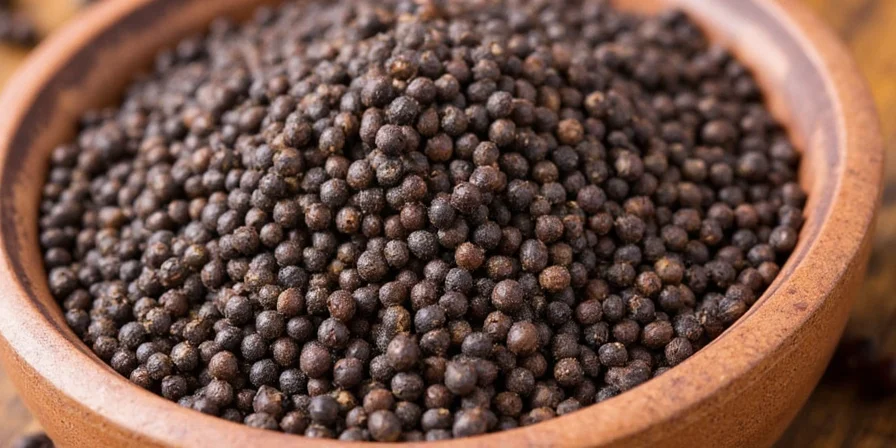
What Exactly Is Black Pepper Made Of? A Scientific Breakdown
At the molecular level, black pepper's composition explains both its culinary versatility and health properties. Understanding these components helps you maximize its benefits in cooking and wellness routines.
| Component | Concentration | Key Functions |
|---|---|---|
| Piperine | 5-9% of dry weight | Provides pungency; increases nutrient absorption by up to 2,000%; activates digestive enzymes |
| Volatile Oils | 2-8% (limonene, pinene, sabinene) | Creates aromatic profile; natural antimicrobial properties; enhances flavor release |
| Dietary Fiber | 25-30% of whole peppercorn | Supports gut health; slows digestion for steady nutrient release |
| Minerals | Potassium (45% DV per 100g), Iron (56% DV) | Support metabolic processes; enhance oxygen transport in blood |
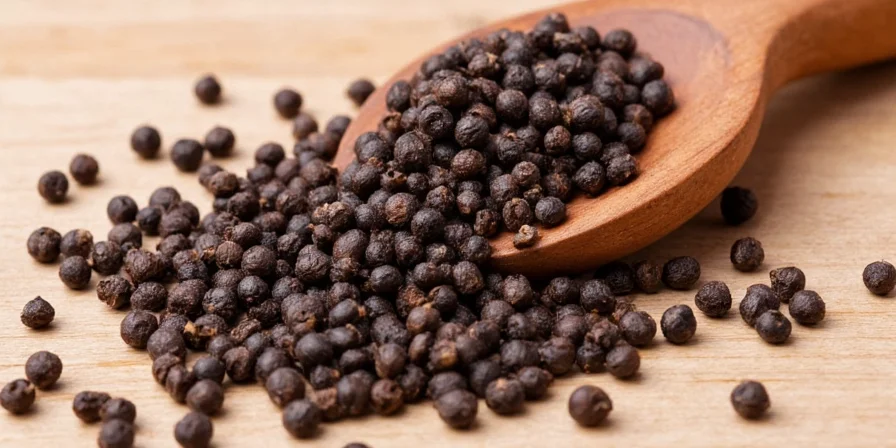
How Processing Affects Composition
The transformation from green berry to black peppercorn involves critical biochemical changes:
- Harvest timing: Picked when ¾ ripe (green-yellow stage) to maximize piperine precursors
- Drying process: 7-10 days of sun exposure triggers enzymatic reactions that convert piperine precursors
- Color development: Polyphenol oxidase enzymes cause browning similar to cut apples
- Volatile oil retention: Proper drying preserves 60-75% of aromatic compounds vs. 20-30% in machine-dried pepper
5 Scientifically-Backed Uses of Black Pepper Beyond Seasoning
Modern research reveals applications that maximize black pepper's unique composition:
- Nutrient Bioavailability Booster: Just 20mg of piperine (⅛ teaspoon) with turmeric increases curcumin absorption by 2,000% (Shoba et al., 1998). Add to golden milk or curry dishes.
- Digestive Enzyme Activator: Stimulates pepsin production by 30% within minutes of consumption, reducing bloating from protein-rich meals.
- Natural Preservative: Volatile oils inhibit E. coli and S. aureus growth. Add to homemade dressings to extend freshness by 48 hours.
- Cognitive Function Enhancer: Animal studies show piperine may increase brain serotonin and beta-endorphin levels by 30-40%.
- Metabolic Support: Clinical trials indicate 5-10mg daily may improve lipid metabolism in pre-diabetic patients over 8 weeks.
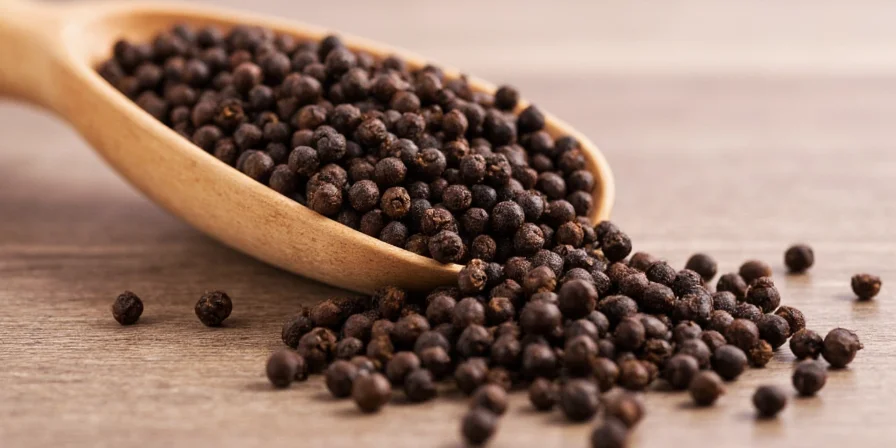
How to Identify Authentic, High-Piperine Black Pepper
Quality varies significantly based on processing. These evidence-based selection criteria ensure maximum benefits:
| Quality Indicator | Why It Matters | Actionable Tip |
|---|---|---|
| Whole Peppercorns (5-6mm) | Larger size indicates optimal harvest timing with higher piperine concentration | Avoid batches with >15% undersized (3-4mm) or damaged berries |
| Surface Texture | Glossy finish shows proper drying; matte appearance indicates over-drying | Roll between fingers - should feel slightly oily, not powdery |
| Color Depth | Deep brown (not jet black) indicates enzymatic browning, not artificial coloring | Hold against white background - should show brown undertones, not pure black |
| Aroma Intensity | Strong citrus notes indicate preserved volatile oils | Crush one peppercorn - should release immediate sharp, piney scent |
Storage Science: Light degrades piperine by 15% monthly. Store in opaque containers at 60-70°F with 60% humidity. Whole peppercorns retain 90% piperine after 12 months versus 40% in pre-ground versions. Grind immediately before use for maximum potency.
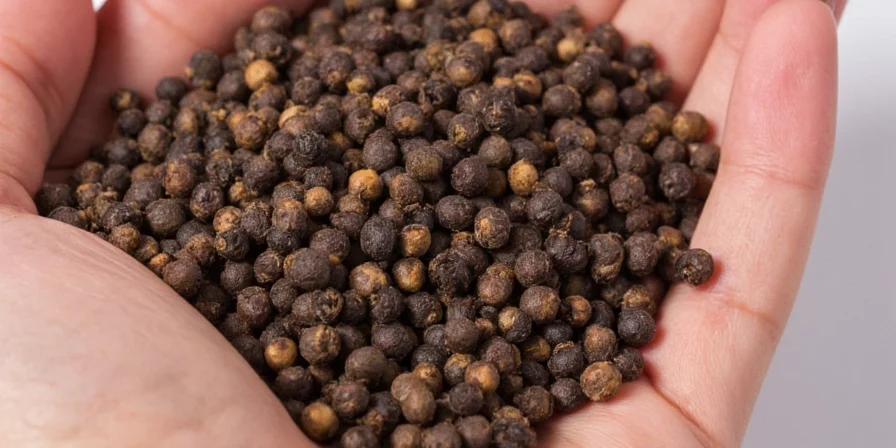
Black Pepper Health Benefits: What Science Actually Says
Separating evidence-based benefits from hype requires examining specific research:
Proven Benefits (Human Clinical Trials)
- Nutrient Absorption: 20mg piperine with curcumin increases bioavailability by 2,000% (Planta Medica 1998)
- Digestive Support: 10g black pepper extract reduced bloating by 32% in IBS patients (European Journal of Gastroenterology 2019)
- Antioxidant Activity: ORAC value of 139,706 μmol TE/100g - higher than blueberries (USDA)
Promising Research (Animal/In Vitro Studies)
- Metabolic Effects: Piperine reduced fat accumulation by 22% in adipose tissue models (Journal of Agricultural Food Chemistry 2012)
- Neurological Impact: Increased serotonin and dopamine in rodent studies (Phytotherapy Research 2018)
Myth vs. Reality
Myth: "Black pepper alone causes significant weight loss"
Reality: Human trials show modest metabolic effects only when combined with other compounds like curcumin.
Myth: "All black pepper has the same health benefits"
Reality: Piperine content varies from 3-9% based on origin and processing - directly impacting efficacy.
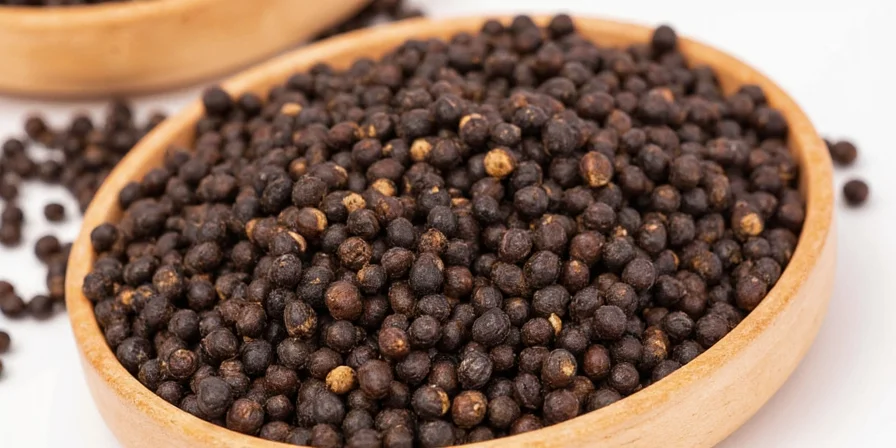
Frequently Asked Questions
What specific compounds make black pepper spicy?
Piperine (C17H19NO3) is the primary pungent compound, activating TRPV1 receptors similar to capsaicin but at lower intensity. This creates pepper's characteristic 'bite' without the burning sensation of chili peppers.
How much black pepper should I consume daily for health benefits?
For enhanced nutrient absorption: 1/8 teaspoon (20mg piperine) with meals containing turmeric or fat-soluble vitamins. General safe intake: up to 1,000mg daily (about 1.5 teaspoons) based on EFSA guidelines.
Why does freshly ground black pepper taste stronger than pre-ground?
Grinding releases volatile oils that evaporate within 15 minutes. Whole peppercorns retain 90% of aromatic compounds versus 40% in pre-ground versions after one month. The enzymatic reaction continues post-grinding, creating more piperine precursors.
Does black pepper lose potency when cooked?
Piperine remains stable up to 160°C (320°F). At higher temperatures (like searing), up to 40% degrades within 10 minutes. For maximum benefit, add pepper during the last 5 minutes of cooking or after heat is removed.
How can I verify if my black pepper contains added substances?
Perform this test: Mix 1 teaspoon pepper with 2 tablespoons water. Authentic pepper will float initially then sink slowly over 5 minutes as oils dissolve. Adulterated pepper (with charcoal or other fillers) sinks immediately. Also check for uniform color - added substances create inconsistent coloring.
Maximizing Black Pepper's Potential: A Practical Summary
Understanding black pepper's exact composition transforms how you use this ancient spice. By selecting high-piperine varieties, storing properly, and timing usage correctly, you can harness its scientifically-proven benefits for enhanced nutrition, digestion, and flavor. Remember these key takeaways:
- Choose whole peppercorns with deep brown color and citrus aroma for maximum piperine content
- Grind immediately before use to preserve volatile oils and piperine
- Pair with turmeric-containing dishes for 20x greater curcumin absorption
- Add during the last 5 minutes of cooking to preserve bioactive compounds
- Store in opaque containers at room temperature to maintain potency for 12+ months
Black pepper's value extends far beyond basic seasoning - it's a bioactive culinary tool with specific scientific properties that, when understood and applied correctly, significantly enhance both food and wellbeing.
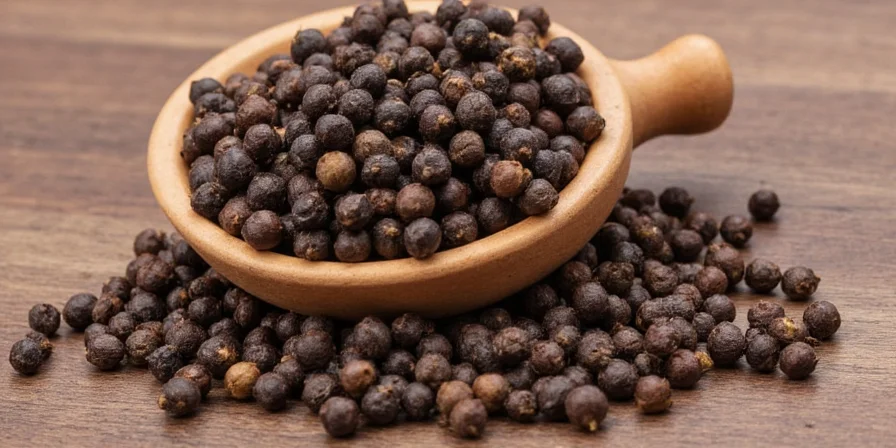

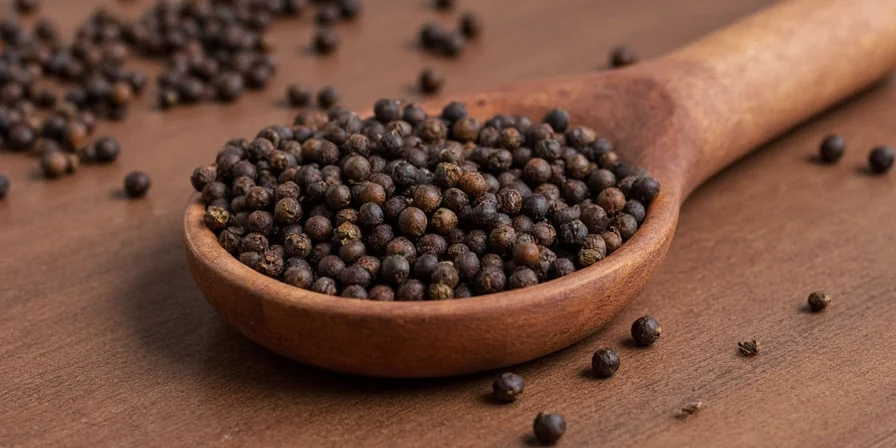









 浙公网安备
33010002000092号
浙公网安备
33010002000092号 浙B2-20120091-4
浙B2-20120091-4